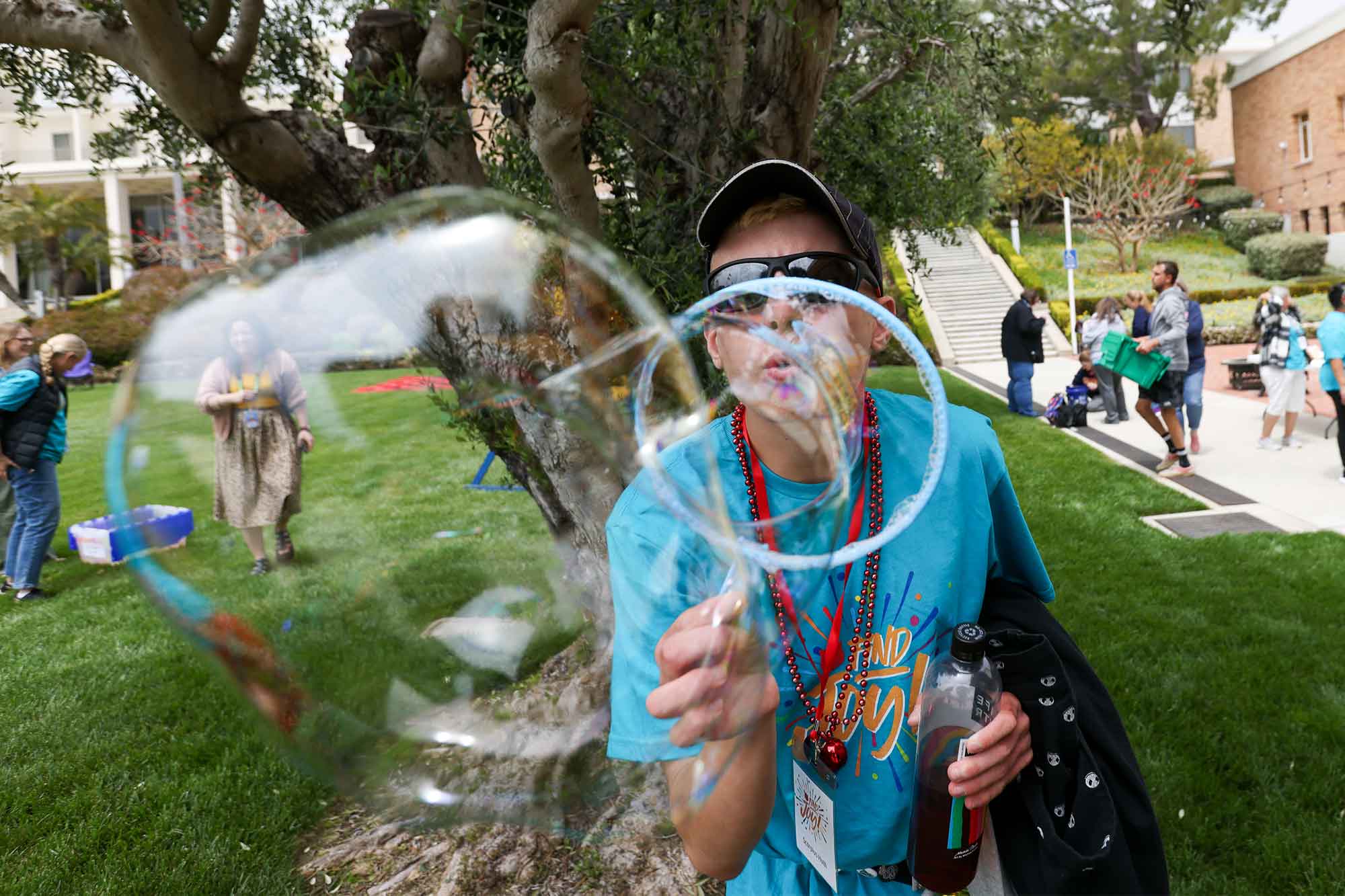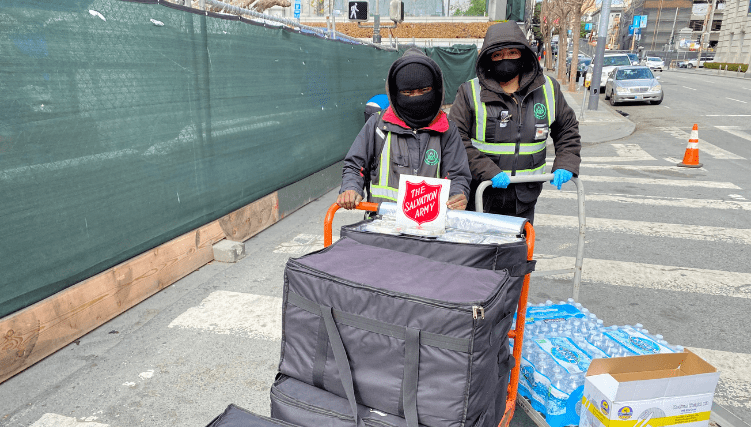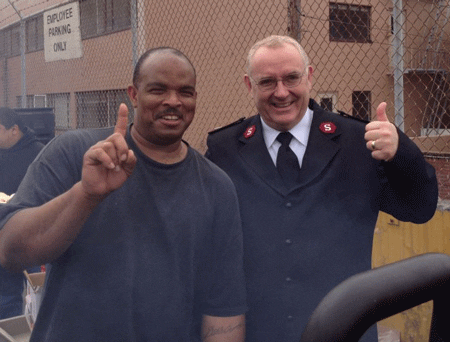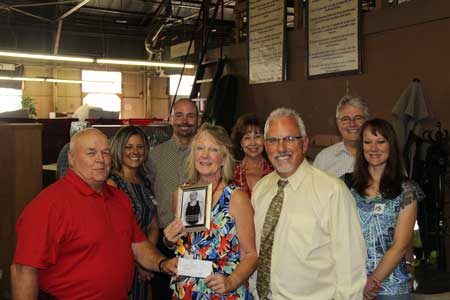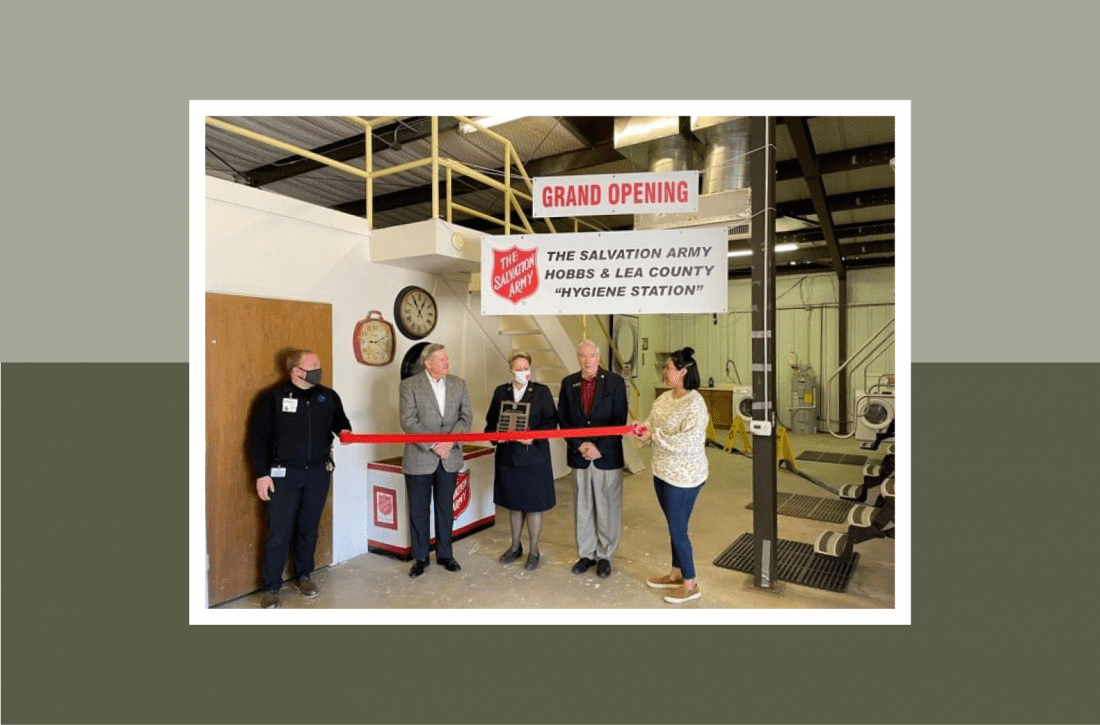Listen to this article
Listen to this article
Loading
Play
Pause
Options
0:00
-:--
1x
Playback Speed- 0.5
- 0.6
- 0.7
- 0.8
- 0.9
- 1
- 1.1
- 1.2
- 1.3
- 1.5
- 2
Audio Language
- English
- French
- German
- Italian
- Spanish
Open text
how the salvation army intermountain connection center operates to improve lives. acting as the front door to the salvation army’s social services, theintermountain connection center, based in aurora, colorado, provides a starting point for information and resources that can drastically benefit an individual or family’s life. with a phone call, email or in-person meeting, the connection center assists those across colorado, eastern montana, utah and wyoming. regardless of location, connection center employees and volunteer resource navigators are prepared to offer immediate solutions and options to those who reach out. “clients that walk in, we can provide emergency food and drinks. we have a community closet if people need shoes, blankets or hygiene items—anything like that,” said connection center program manager andenergy outreach coloradoliaison kelly brown. along with immediate care and emergency financial assistance, individuals can receive resource referrals, rental assistance, utility assistance, housing navigation and crisis services—all over the phone. “we don’t really refer to it as a ‘call center,’ it’s a connection center. it really is a ministry and social mission of the salvation army,” said divisional secretary and denver metro coordinator major richard pease. pease said a large part of case management can be done remotely, resulting in beneficial aid across the region. one of the ways the salvation army identifies housing needs is throughthe vulnerability index – service prioritization decision assistance toolor vi-spdat assessments. these assessments, in conjunction with the metro denver housing initiative (mdhi), aid in rapid rehousing coordination through a series of questions designed to evaluate an individual’s current situation and history with homelessness. growth and expansion. upon its opening in 2012, brown said the connection center was primarily staffed by volunteers and aimed to answer phone calls to connect individuals with someone who could assist with their concerns. the resulting aid often looked like financial assistance. oncecovid-19was declared a pandemic in march 2020, the connection center began assisting more individuals, and the operations grew. “because of covid-19 we were able to ramp up very quickly and show the positive outcomes to our government partners,” said pease. in july 2021, after demonstrated success, the center began receiving grants, like the emergency solutions grants (esg), and partnered with other nonprofits, including energy outreach colorado, to have the funds and resources available to assist the growing number of individuals living without a permanent home or facing emergency life situations in the region. with the help of grants, the connection center brought on more paid team members. it began extending hours of operation, and eventually outgrew its original office space and relocated to aurora’semergency/disaster services (eds) office. in april alone, staff and volunteers responded to 5,000 phone calls. “we are now the access point in the whole denver metro for family sheltering,” said brown. “so, if you have a minor under 18 in your family, you call us here at the connection center and we can get you into a shelter the same day here in the metro area.”. in 2022, the connection centerreceived a $5 million grantfrom thebezos day 1 families fundto expand its programs and services across the denver metro area. “we can now provide emergency financial assistance for things like rent, fixing your car if you’re living in your car, a couple of nights of a motel stay if you are stuck in an emergency situation without housing,” said brown. “we could help pay utility bills and assist with things that rose to a level of being an emergency.”. brown said the grants have helped expand efforts beyond offering financial assistance.pease said that he’d like to see this method of outreach replicated across the greater salvation army. “it’s really a robust model that could probably be duplicated across the country. much like the[adult rehabilitation center (arc)]has their call center, there could be a connection center that serves more than just our division and really puts people in touch using technology,” said pease. improving lives. brown said recently a man came into the office seeking assistance after he had been living in his car with his two young children.the connection center took the children aside and provided them with toys to play with while their father underwent a vi-spadt assessment to determine the family’s next step. “we gave them snacks and just a couple of things we had here to keep them entertained and happy,” said brown, adding that the kids were so happy they almost didn’t want to leave. the center was then able to situate the family at a nearby hotel while they worked toward their next steps. brown said providing this type of support every day is what makes the salvation army connection center successful in its mission to help others—and what makes her job so rewarding. “my favorite thing is being able to immediately help someone that comes in or by phone,” said brown. “just having that immediate response where they are going to be safe and warm and taken care of from very unsafe and inhabitable situations.”. do good:. see howthe salvation army fights homelessness. need some extra motivation to do good today?follow caring magazine on instagramfor inspiring stories, podcasts and more to get you in the fight for good. how do we treat everyone with love and kindness, as if they were our neighbor?get the do good family roadmapand take a 4-week journey for families in how to be a good neighbor. follow the guide to see what the bible says about the art of neighboring and take tangible steps together on your printable roadmap to be a caring, helpful, welcoming and supportive neighbor right where you are. get the do good digest.(because being a nice humanalwayshas a place in your day.) join 23k+ people who care and get weekly inspiration sent right to your inbox.
Open context player
Close context player
Plays:-Audio plays count
how the salvation army intermountain connection center operates to improve lives. acting as the front door to the salvation army’s social services, theintermountain connection center, based in aurora, colorado, provides a starting point for information and resources that can drastically benefit an individual or family’s life. with a phone call, email or in-person meeting, the connection center assists those across colorado, eastern montana, utah and wyoming. regardless of location, connection center employees and volunteer resource navigators are prepared to offer immediate solutions and options to those who reach out. “clients that walk in, we can provide emergency food and drinks. we have a community closet if people need shoes, blankets or hygiene items—anything like that,” said connection center program manager andenergy outreach coloradoliaison kelly brown. along with immediate care and emergency financial assistance, individuals can receive resource referrals, rental assistance, utility assistance, housing navigation and crisis services—all over the phone. “we don’t really refer to it as a ‘call center,’ it’s a connection center. it really is a ministry and social mission of the salvation army,” said divisional secretary and denver metro coordinator major richard pease. pease said a large part of case management can be done remotely, resulting in beneficial aid across the region. one of the ways the salvation army identifies housing needs is throughthe vulnerability index – service prioritization decision assistance toolor vi-spdat assessments. these assessments, in conjunction with the metro denver housing initiative (mdhi), aid in rapid rehousing coordination through a series of questions designed to evaluate an individual’s current situation and history with homelessness. growth and expansion. upon its opening in 2012, brown said the connection center was primarily staffed by volunteers and aimed to answer phone calls to connect individuals with someone who could assist with their concerns. the resulting aid often looked like financial assistance. oncecovid-19was declared a pandemic in march 2020, the connection center began assisting more individuals, and the operations grew. “because of covid-19 we were able to ramp up very quickly and show the positive outcomes to our government partners,” said pease. in july 2021, after demonstrated success, the center began receiving grants, like the emergency solutions grants (esg), and partnered with other nonprofits, including energy outreach colorado, to have the funds and resources available to assist the growing number of individuals living without a permanent home or facing emergency life situations in the region. with the help of grants, the connection center brought on more paid team members. it began extending hours of operation, and eventually outgrew its original office space and relocated to aurora’semergency/disaster services (eds) office. in april alone, staff and volunteers responded to 5,000 phone calls. “we are now the access point in the whole denver metro for family sheltering,” said brown. “so, if you have a minor under 18 in your family, you call us here at the connection center and we can get you into a shelter the same day here in the metro area.”. in 2022, the connection centerreceived a $5 million grantfrom thebezos day 1 families fundto expand its programs and services across the denver metro area. “we can now provide emergency financial assistance for things like rent, fixing your car if you’re living in your car, a couple of nights of a motel stay if you are stuck in an emergency situation without housing,” said brown. “we could help pay utility bills and assist with things that rose to a level of being an emergency.”. brown said the grants have helped expand efforts beyond offering financial assistance.pease said that he’d like to see this method of outreach replicated across the greater salvation army. “it’s really a robust model that could probably be duplicated across the country. much like the[adult rehabilitation center (arc)]has their call center, there could be a connection center that serves more than just our division and really puts people in touch using technology,” said pease. improving lives. brown said recently a man came into the office seeking assistance after he had been living in his car with his two young children.the connection center took the children aside and provided them with toys to play with while their father underwent a vi-spadt assessment to determine the family’s next step. “we gave them snacks and just a couple of things we had here to keep them entertained and happy,” said brown, adding that the kids were so happy they almost didn’t want to leave. the center was then able to situate the family at a nearby hotel while they worked toward their next steps. brown said providing this type of support every day is what makes the salvation army connection center successful in its mission to help others—and what makes her job so rewarding. “my favorite thing is being able to immediately help someone that comes in or by phone,” said brown. “just having that immediate response where they are going to be safe and warm and taken care of from very unsafe and inhabitable situations.”. do good:. see howthe salvation army fights homelessness. need some extra motivation to do good today?follow caring magazine on instagramfor inspiring stories, podcasts and more to get you in the fight for good. how do we treat everyone with love and kindness, as if they were our neighbor?get the do good family roadmapand take a 4-week journey for families in how to be a good neighbor. follow the guide to see what the bible says about the art of neighboring and take tangible steps together on your printable roadmap to be a caring, helpful, welcoming and supportive neighbor right where you are. get the do good digest.(because being a nice humanalwayshas a place in your day.) join 23k+ people who care and get weekly inspiration sent right to your inbox.
Listen to this article













